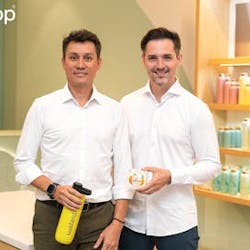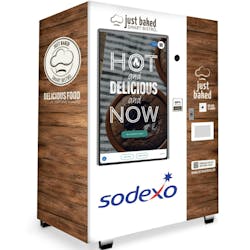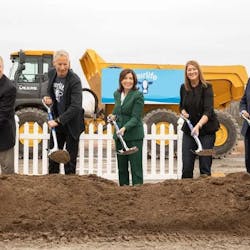If you read yesterday's VendingMarketWatch.com Today, hopefully you saw my post about how the industry, and indeed the world, has changed. We do business differently, with more technology, the challenges of hiring hard-working employees, meeting increased regulations, staying profitable, etc. I made the point that much larger operations are able to weather some of these storms, but others aren't so fortunate. So if you are looking for an exit, there are things you can do.
The suggestions
I rarely advise a potential seller to change course just before retirement or a sale. Don't try to match the new normal by upgrading to tech you don't have, purchasing new equipment for locations or do anything that will cause further debt. These are asset sales so a seller is responsible for the lien debt on the balance sheet.
There are a number of things you CAN do to make your company more compelling to a purchaser, and without much cost, your company may be more profitable and attractive because of these.
1. Raise prices wherever you can without putting a major customer under jeopardy. It's all about making money and the better the pricing the easier it is to attract.
2. If you're not into OCS, try it out. Sellers are much more desirable if they have OCS services along with their market and vending accounts.
3. Pull marginal accounts. I have a seller in the Midwest with telemetry, light speed, the whole nine yards. 1/3rd of his accounts are doing under $5,000 a year. I've suggested and he has agreed, to pull the majority of these, so instead of 40% of sales current worth on $2 million in revenue, after pulling 50+ plus stops accounting for only $150,000 of his gross, we have now been offered 45% of the remaining business or $32,500 more. And he will still have about 70 upgraded machines with telemetry he can sell separately to the buyer or elsewhere. In this case less is more.
4. If you don't have markets, try to do at least two or three. Some sellers I've spoken with are adamant that they will never run markets but it's better to have a few. Not only will your employees have the knowledge on how to service these (buyers need experienced drivers and techs, just like you do); the perception on the buyer's part is that you are open minded and have at least tried to modernize. This will go a long way in attracting a better buyer.
5. Contracts. Many operations don't have them. Other then a service agreement with a 60 day kick out clause. I know these are hard to obtain for many of you, especially after you have serviced a client for 20 years on a handshake. But remember your buyer hasn't serviced them for 20 years so the client may look to the new owner suspiciously. The more the buyer feels protected in taking over your accounts, the more he will pay and the less the hold back or financial guarantees after the sale, will be.
You don't have to do these for all accounts. Just any of the top 10-15 you feel you can. While I know it's not simple, try to get the client to allow for the transfer of the account upon a sale. There are ways to do this and still let your client kick a buyer out for non-performance. Always make it a win-win for your client. Tell them if you ever sell you will only do so to a buyer who is not only bigger then you but will be able to offer them more services, will grow with them etc.
It's somewhat easier then you imagine.
6. Don't do this yourself. Too many friends and acquaintances I've known tried to sell themselves either to try to save a few dollars or because of ego. I have seen more then my share of disasters befall these guys. Not only don't they always get the most (that I know is available) that a buyer will pay, they don't have the knowledge of how to close these quickly and confidentially and in the process, also making sure the contracts (both letters of intent and asset purchase agreements) are binding, legal and protect the seller and his post close payouts. Most lawyers know how to write the legal representations but many miss the essence of the deal and don't know the extra ways to protect you.
Whether you use PVC, another industry representative or friend who may have been successful with his sale, speaking to these large buyers on your own can not only be a detriment but I promise will be emotionally draining and a huge distraction from your business.
The one sure thing about the new normal? Tomorrow's will be a different one than today's.
About the author
MARC ROSSET is founder and president of Professional Vending Consultants Inc., a specialized intermediary for acquisitions of full-line vending and office coffee service companies in the U.S. PVC has represented more than 310 transactions with gross sales value of just over $900 million since 1993. Rosset has played a key role in helping to establish industry-recognized guidelines for the value of vending, OCS and foodservice companies. He can be reached at [email protected] or (312) 654-8910.





